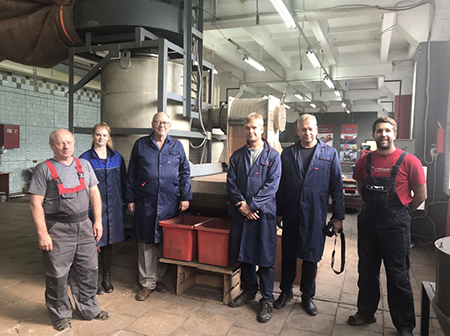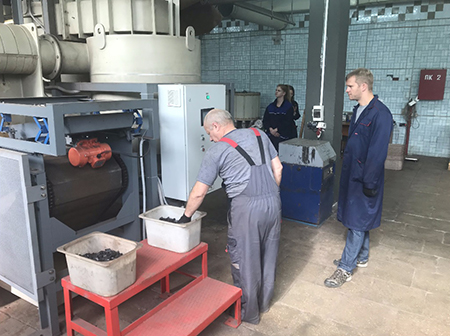Water is a scarce commodity in drought-stricken South Africa. One area where water can be saved is in the processing of coal, which traditionally uses large amounts of water.
Keeping this in mind, two engineers from the North-West University’s (NWU) School of Chemical and Minerals Engineering visited Siberia last year with the aim of familiarising themselves with their dry coal beneficiation technologies for academic purposes.
"The BRICS-sponsored trip to Russia was the first step in studying the fundamentals of Russian dry beneficiation technologies,” says Prof Quentin Campbell, director of the school.
“These processing methods show significant potential for the inevitable future of dry coal-processing practices in South Africa.”
It has simplicity in its design, operation and maintenance, which makes it an appealing alternative to wet processing.
Simple solutions to complex problems
According to PhD student Nikki Hughes, the main aim of the visit was to become acquainted with novel Russian dry beneficiation techniques, of which the Sep-Air technology by Gormash Export LLC is an example.
“In order for us to simulate and model it for South Africa’s needs, we first needed to understand the fundamentals of how it works.” Nikki says they did this through various experiments and by closely observing how the technology is used.
"I have learnt from our visit that one can indeed find very simple solutions to complex problems if you are prepared to think outside the box. Exposure to other trains of thought is key to evaluating whether we are still in a box of our own,” says Prof Campbell.
The visit paved the way for collaboration between the NWU and the Gormash Export LLC company, which owns the Sep-Air system, through the signing of a memorandum of understanding. This will enable further research opportunities for researchers and students.
The most important outcome was that the agreement allows the NWU to obtain a working computer-based model of a Sep-Air unit.
“This will enable us to evaluate it specifically for South African conditions and in the process not only look at ways to conserve water but also have access to a new way of making coal even more economically attractive,” says Nikki.

Nikki Hughes (second from left), a chemical engineering doctoral student, and Prof Quentin Campbell (third from left), director of the School of Chemical and Minerals Engineering, visited Gormash Export LLC in Novosibirsk, Russia to look at their Sep-Air dry coal beneficiation technology. Their host and owner of the company, Andrey Stepanenko, is second from the right. With them are workers of Gormash-Export LLC.

The Sep-Air in action. One of the responsibilities of PhD student Nikki Hughes was to familiarise herself with the operation of the machine. This will enable her to study the fundamentals of a laboratory set-up to be built at the NWU.
